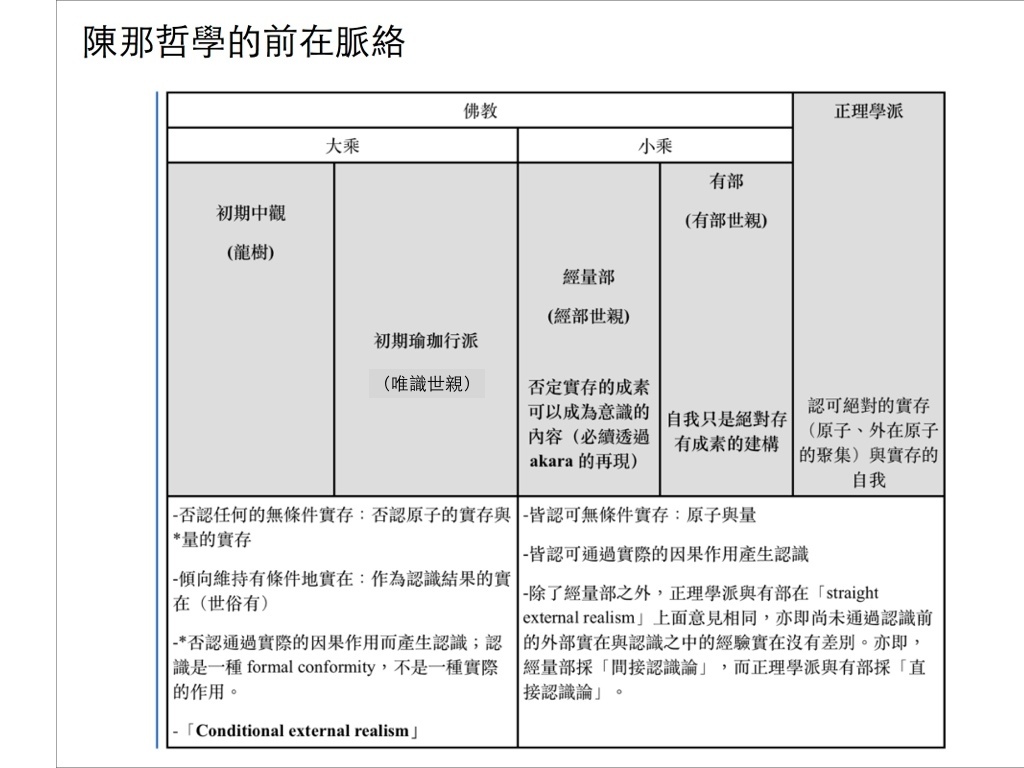陳那哲學的一個另類看法—與談仁宥法師新書《陳那現量理論及其漢傳詮釋》
>>More
-
Transcendental Logic and Spiritual Development – Following Dignāga's and Kant's Critical Epistemology 2016/12/12
Transcendental Logic and Spiritual Development – Following Dignāga's and Kant's Critical Epistemology 2016/12/121. Inference vs. dialectics/ prasaṅgaA proposition whose subject is not presently cognized can be established via two kinds of employment……
-
Does Freedom Contradict Causal Exhaustion? – A Critical-Epistemological Resolution (KU-NCCU Graduate Roundtable)
1 Freedom and Causal Exhaustion – West (Kant) and East (Buddhism)2 Defending Kant's Transcendental Idealism on the Thesis3 The Mādhyamaka-Yogācāra Conflict4 The Epistemic Situation Talks Does Freedom Contradict Causal Exhaustion?– A Critical-Epistemological……
-
Nāgārjuna's reconciliation of the Buddhist empty-existence conflict by means of catuṣkoṭi and prasajya-pratiṣeda
Nāgārjuna (150 – 250 C.E.) is believed to originate from South India. At his time, Buddhism in India faces a big split between the school of emptiness in the south (Mahāsaṃghika 大眾部, a branch which is believed by modern scholars to be the initial development……
-
Re: Nāgārjuna's reconciliation of the Buddhist empty-existence conflict by means of catuṣkoṭi and prasajya-pratiṣeda
a Edited 1 time(s). Last edit at 12/10/2014 01:58PM by Itsuki.
-
Provisional English translation of one passage in《教迦旃延經》, anticipating comments and criticism
Saṃyuktāgama《雜阿含經》(T02n0099_p0085c17(00)~p0086a03(10))Chinese text: 佛告[跳-兆+散]陀迦旃延:「世間有二種依,若有、若無,為取所觸。取所觸故,或依有、或依無。若無此取者心境繫著,使不取、不住、不計我,苦生而生,苦滅而滅,於彼不疑、不惑,不由於他而自知,是名正見,是名如來所施設正見。所以者何?世間集如實正知見,若世間無者不有,世間滅如實正知見,若世間有者無有,是名離於二邊說於中道…」 Buddha told……

